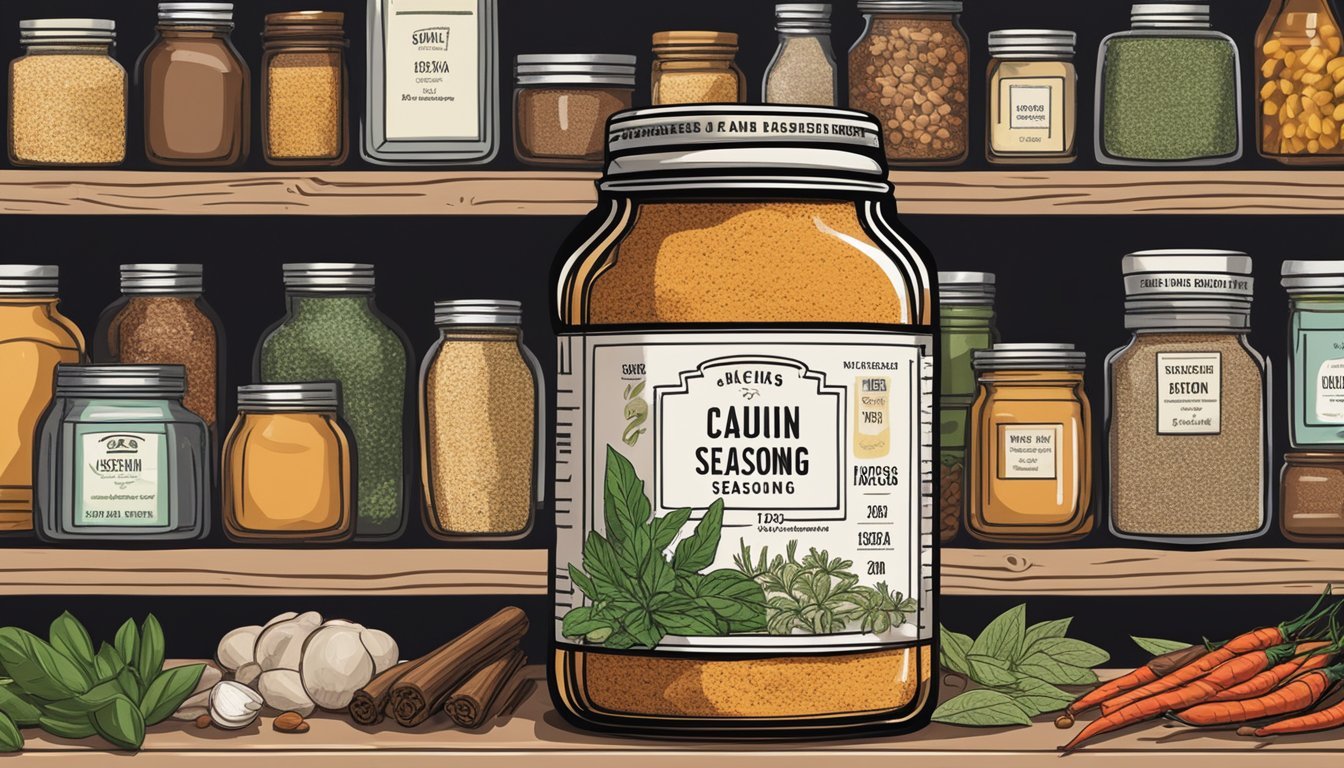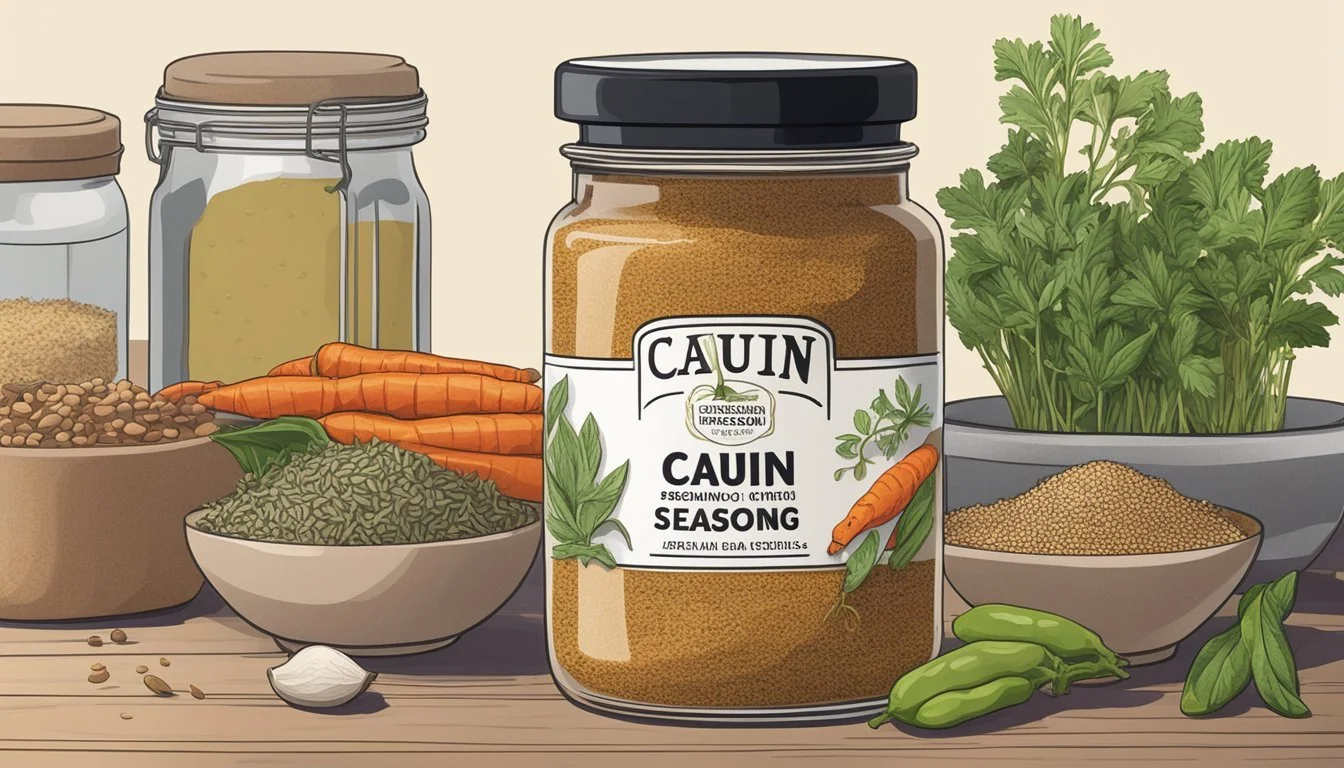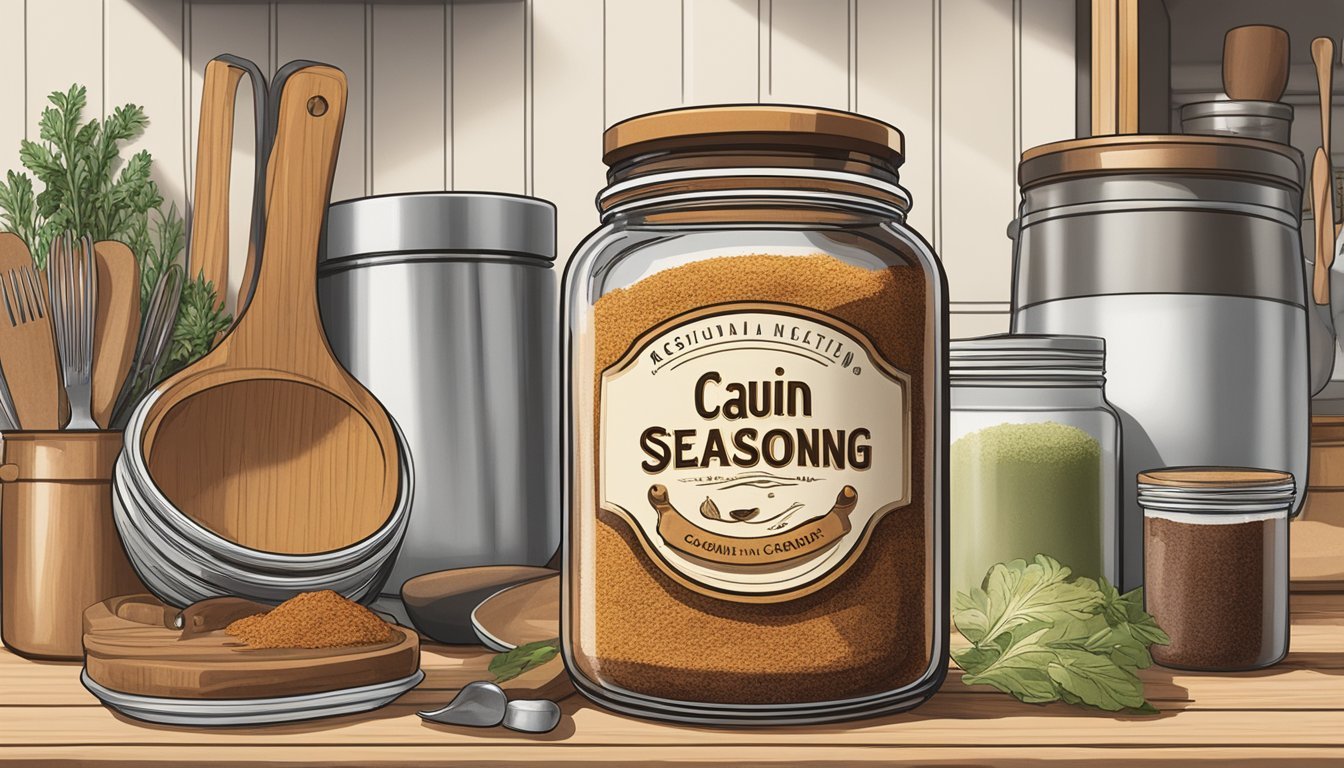Does Cajun Seasoning Expire?
Shelf Life and Storage Tips
Cajun seasoning, a vibrant spice blend rooted in the rich culinary traditions of Louisiana, often raises questions about its shelf life and flavor retention. Though Cajun seasoning doesn't truly expire, its flavors can degrade over time, typically remaining at its best quality for about 1 to 3 years. Proper storage in tightly sealed containers can help maintain its potency and ensure that dishes retain their intended zest.
The distinct combination of garlic, onion, cayenne, and pepper that characterizes Cajun seasoning brings a bold twist to various cuisines. This blend is essential for authentic Louisiana dishes, where robust flavors are paramount. For anyone passionate about maintaining the integrity of their spice rack, understanding how to store and assess the freshness of Cajun seasoning is key to culinary success.
When stored under optimal conditions, Cajun seasoning can elevate a dish with its signature heat and complexity. By keeping the seasoning in a cool, dry place, the vibrant flavors that define Louisiana cuisine can be preserved, allowing for continued enjoyment of this versatile spice blend.
Understanding Cajun Seasoning
Cajun seasoning is a robust blend of spices rooted in the cultural and culinary traditions of Louisiana. It combines key ingredients to deliver a bold, aromatic, and spicy flavor profile, making it essential in various Cajun dishes.
Ingredients and Flavor Profile
Cajun seasoning typically features a mix of paprika, garlic powder, onion powder, cayenne pepper, black pepper, and salt.
Other spices like thyme and oregano often enhance its complexity. Smoked paprika can also be used to add depth. This blend results in a spicy, earthy, and slightly smoky flavor. The inclusion of cayenne pepper contributes to its characteristic heat, while the herbs provide aromatic balance.
Cajun Cuisine and Dishes
Cajun seasoning is a staple in Louisiana cuisine, known for its hearty and flavorful dishes. It’s commonly used in gumbo, jambalaya, blackened fish, and shrimp étouffée. These dishes often feature proteins like chicken, sausage, and seafood, paired with rice and vegetables.
Its versatility and bold flavors make Cajun seasoning a popular choice for marinating meats, seasoning vegetables, and creating savory soups and stews.
Health and Nutritional Perspective
Cajun seasoning can have nutritional benefits, particularly when containing spices like paprika and garlic powder. Paprika is rich in Vitamin A, beneficial for vision and immune function.
Garlic and onion powders are sources of fiber and can aid digestive health. However, it's essential to be mindful of sodium levels, as commercial blends may contain added salt. Homemade versions allow for better control of sodium content, making it a healthier option. Spices like black pepper and cayenne pepper can also aid metabolism and improve circulation.
Cajun Seasoning Storage Best Practices
Proper storage can greatly extend the shelf life of Cajun seasoning by preserving its flavor and potency. Key factors include maintaining the right storage conditions and choosing suitable containers.
Ideal Storage Conditions
Temperature: Cajun seasoning should be stored in a cool, dry place. High temperatures can cause the spices to lose their potency faster. A pantry away from heat sources like stoves or ovens is ideal.
Light: Light exposure can deteriorate the quality of the seasoning. Hence, it is best to store the seasoning in a dark location. A cabinet or a drawer is often preferable.
Humidity: Keeping the seasoning dry is crucial. Moisture can lead to clumping and mold growth. Ensure the storage area is not exposed to humidity.
Containers and Packaging
Airtight Containers: To maintain freshness, use airtight containers. These containers prevent air from degrading the seasoning's quality and keep moisture out. Glass jars with tight-fitting lids or high-quality plastic containers are recommended.
Packaging: If the original packaging isn't suitable for long-term storage, transfer the seasoning to a more secure container. Store-bought spice blends often come in containers that aren't entirely airtight.
Bulk Storage: For those purchasing in bulk, it's beneficial to use smaller containers for daily use while keeping the bulk of the seasoning in a larger, well-sealed container. This minimizes exposure to air and light.
Labeling: Always label containers with the purchase date. This helps in keeping track of the seasoning's age and ensuring you use it within its optimal timeframe.
Shelf Life and Expiration
Cajun seasoning can last for years if stored properly, but its taste and potency will degrade over time. How it is stored greatly affects its shelf life, aroma, and spice level.
Determining Freshness and Potency
The freshness and potency of Cajun seasoning are paramount to its culinary effectiveness. Generally, Cajun seasoning retains its best quality for about 1-3 years. Freshness is influenced by factors such as the quality of the spices when blended and the storage conditions. Spices stored in airtight containers in a cool, dark place maintain their potency longer.
To evaluate freshness, consider the aroma and taste. Fresh Cajun seasoning should have a robust scent and a strong flavor. If these qualities have diminished, the seasoning may not provide the desired culinary impact.
Signs of Spoilage
While spices do not spoil in the same way perishable items do, there are clear signs that Cajun seasoning has degraded. Loss of aroma is a primary indicator. If the spice blend lacks its characteristic scent, it may be past its prime.
Changes in color also signal spoilage. Cajun seasoning should have a consistent blend of hues typical of the spices used. If it appears dull or faded, it may be old.
Clumping is another sign. Moisture exposure can cause the spices to clump together, reducing their quality. It is essential to keep the seasoning in a dry environment to avoid this issue.
Impact of Expiration on Taste
Expired Cajun seasoning may not spoil in a manner affecting health, but it will taste different. The spice level and overall flavor profile diminish over time. This reduction is due to the gradual loss of essential oils in the spices.
Using expired seasoning can lead to bland and ineffective dishes. It's advisable to test a small amount before using it in recipes. If the taste is underwhelming, it indicates the seasoning is past its prime.
In summary, while Cajun seasoning can last for years, its taste and potency will decline. Proper storage is critical to maintaining its quality, ensuring that your dishes remain flavorful and aromatic.
Using Cajun Seasoning in Cooking
Cajun seasoning is a versatile blend that adds a warm, spicy flavor to various dishes. From meats to vegetables, it enhances the taste of several recipes, and homemade variations allow for tailored spice levels and ingredients.
Versatile Applications in Recipes
Cajun seasoning can be used in a myriad of recipes. Gumbo and Jambalaya are traditional dishes where this spice mix shines, imparting robust flavors. It's also excellent as a rub for meats like beef, chicken, and fish, creating a flavorful crust when grilled or roasted.
When added to soups and stews, the seasoning enriches the broth. For a quick dinner, Cajun Seared Shrimp or Cajun Chicken Alfredo provides a tasty, spicy meal. This blend is also perfect for seasoning pasta, rice dishes, and even vegetables, delivering a zesty kick.
Homemade Cajun Seasoning Variations
Creating homemade Cajun seasoning allows customization of flavors. A basic mix typically includes paprika, kosher salt, black pepper, onion powder, garlic powder, and dried thyme. Adjustments can be made to suit personal preferences, such as adding more cayenne pepper for extra heat or incorporating Italian seasoning for a unique twist.
Ensuring the spices are fresh will produce the best results. Homemade blends typically last 6-12 months when stored in a cool, dry place. Experimenting with adding dried herbs like oregano or basil can provide new flavor profiles, making each batch distinct and tailored to specific dishes.
Substitutions and Alternatives
When Cajun seasoning isn't available, there are several substitutes. Creole seasoning is a close match, offering similar flavor profiles but often with more herbs. Old Bay seasoning can also be used as an alternative, especially in seafood dishes, though it has a distinct taste.
For those looking to create a quick substitute, combining paprika, kosher salt, black pepper, garlic powder, and onion powder can suffice. Depending on the dish, adding a touch of chili powder or Italian seasoning can mimic some of Cajun seasoning's complexity. These alternatives ensure that the dish still delivers a rich, spicy flavor, even without the exact blend.
Practical Tips for Cajun Seasoning Use
Cajun seasoning can elevate a variety of dishes with its aromatic and peppery flavor profile. Knowing how to use it effectively is key to getting the most out of this versatile spice blend.
Cooking Techniques and Prep Time
When using Cajun seasoning, grilling and roasting are popular methods. For chicken or pork, rubbing the meat with olive oil and Cajun seasoning before cooking enhances the smoky and peppery notes.
Prepping time typically involves letting the seasoned meat sit for 15-30 minutes, allowing flavors to penetrate.
For faster meals, eggs can be scrambled with a pinch of Cajun seasoning for a spicy kick. Cajun fries can be made by tossing cut potatoes in olive oil and seasoning before baking or frying.
Total time for these quick dishes usually ranges between 10-25 minutes depending on the method.
Enhancing Flavor in Everyday Meals
Cajun seasoning can be easily incorporated into everyday meals for added flavor. For a savory side, sprinkle it on popcorn for a spicy twist.
It can also be mixed into batters for fried chicken or vegetables to impart a deeper flavor. Adding it to soups and stews, especially those with a tomato base, boosts the aromatic and smoky elements.
For those looking to reduce sugar and saturated fat, using Cajun seasoning as a flavoring agent can replace the need for added salts and fats without compromising on taste.
Health-Conscious Usage
Using Cajun seasoning in a health-conscious manner involves being mindful of the overall quantity. A little goes a long way in providing flavor, which helps reduce the need for excess salt and fats in meals.
Many of its ingredients, such as paprika and thyme, contain beneficial compounds like iron.
Choosing low-sodium versions can make the seasoning even healthier. Seasoning lean cuts of meat like chicken breast or turkey ensures a delicious meal with minimal saturated fat.
By following these tips, health-conscious individuals can enjoy flavorful dishes without sacrificing their dietary goals.






